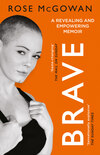Kitabı oku: «The Way of the Strong», sayfa 13
"Quite right, Mr. Moraine," she said steadily, now smiling in her most gracious manner. "And thank you very much for taking such trouble. It has saved me a journey."
Angus abruptly withdrew. Nor was he quite sure whether he had achieved his purpose. As he passed out of the house his doubt was still in his eyes. Nor, to judge by his general expression, was that purpose a kindly one.
The moment the door closed behind Angus, Hendrie swung round in his chair.
"Letters addressed to the post office? Why?" His steady eyes looked up into his wife's face with an intentness that suddenly reminded her of the dreadful display of jealousy she had witnessed once before.
It was a desperate moment. It was one of those moments when it would have been far better to forget all else, and remember only her love for her husband, and trust to that alone. It was a moment when in a flash she saw the deadly side of the innocent deception she was practicing. It was a moment when her soul cried out to her that she was definitely, criminally wrong in the course she had marked out for herself. And, in that moment, two roads distinctly opened up before her mind's eye. One was narrow and threatening; the other, well, it looked the broader and easier of the two, and she plunged headlong down it.
She smiled back into his face. She held up the letter and waved it at him. She was acting. She bitterly knew she was acting.
"Ah," she cried, with a gayety she forced herself to. "You must have your big secrets from me, I must have my little ones from you. That's only fair."
Hendrie smiled, but without warmth.
"Why, it's fair enough, but – I told you my secret."
Monica's laugh rippled pleasantly in his ears.
"So you did. I'd forgotten that." Then she gave an exaggerated sigh. "Then I s'pose I must tell you mine. And I did so want to surprise you with it. You have always told me that I am a – clever business woman, haven't you?"
Hendrie nodded.
"Sure," he said, his manner relaxing.
"You settled one hundred thousand dollars on me when we were married – all to myself, 'to squander as quickly as you like.' Those were your words. Well, I just wanted to show you that I am not one to squander money. I am investing some of it in a concern that is to show a handsome profit. The letter is from the man who is to handle the matter for me. Oh, dear, you've robbed me of all my fun. It is a shame. I – I'm disappointed."
Hendrie rose, smiling. The reaction from his moment of suspicion was intensely marked. He came over to her.
"May I see it?" he asked.
Monica risked all on her one final card.
"Oh, don't rob me of the last little bit of my secret," she cried. Then she promptly held the letter out. "Why, of course you can read it – if you want to."
She waited almost breathlessly for the verdict. If the suspense were prolonged she felt that she must collapse. A dreadful faintness was stealing over her, a faintness she was powerless to fight against. But the suspense was not prolonged, and the verdict came to her ears as though from afar off.
"Keep your little secret, Mon," she heard her husband say. "It's good to give surprises – when they're pleasant. Forgive me worrying you, but – but I think my love for you is a sort of madness – I – " She felt his great arms suddenly thrust about her and was thankful for their support.
CHAPTER X
MONICA'S FALSE STEP
Alexander Hendrie spent only two short days at the farm before he was called away on a flying visit to the seat of his operations at Winnipeg. But during those two days there was no rest for him; his business pursued him through mail and over wire, and the jarring note of the telephone became anathema to the entire household at Deep Willows.
The announcement of his going came as no surprise to Monica. She was prepared for anything in that way. She knew that in the days to come she was likely to see less and less of her husband, the penalty of her marriage to a man engaged in such monumental financial undertakings as his. She was careful to offer no protest; she even avoided expressing the genuine regret she felt. It was the best way she could serve him, she felt, forgetful of the possibility of her attitude being otherwise interpreted. To her, any such display could only be a hindrance, a deterrent to him, and, as such, would be unfair, would not be worthy of her as a helper in his great schemes.
From the moment she learned that she was to take charge of the farm at Deep Willows she began to prepare herself; and with her husband's going, she was left even freer still to pursue the knowledge she had yet to acquire for her new responsibility. Her time was spent almost wholly out of doors; and such was her enthusiasm that daylight was none too early to find her in the saddle, riding round the remoter limits of the farm, watching and studying every detail of the work which was so soon to become her charge.
That she reveled in the new life opening out before her there could be little doubt. Her rounded cheeks and serious eyes, the perfect balance of her keen mind and healthfulness of body all bore testimony to its beneficial effects upon a nature eager to come to grips with the world's work.
She had quite shaken off the effect of that moment of panic when the preservation of her innocent secret had hovered in the balance. Well enough she knew how desperately all this happy life of hers had been jeopardized by the coming of Frank's letter through the hands of Angus Moraine. Had her husband only taken her at her word, opened it and read the heading, "Dearest mother" – well, he hadn't. And she thanked her God for the inspiration of the moment that had prompted her to offer him the letter to read, and for the power and restraint which had been vouchsafed her to weather the threatening storm of almost insane jealousy she had witnessed growing in her passionate husband's eyes.
But it had served her as a lesson, and she was determined to take no further risks. It was absolutely necessary to see Frank once more to hand him the purchase money for the farm, and his starting capital. She dared not risk the mail, and to pay him by check would be to court prompt disaster. Yes, she must see him that once more, and, after that, though it might wrench her feelings to the limit, Frank must pursue his career with only her distant eye watching over him.
So her mind was made up, swiftly, calmly, after a careful study of the position. She arrived at her decision through no selfishness. Rather was it the reverse. She was sacrificing herself to her husband and her boy. To do otherwise was to risk wrecking her husband's happiness as well as her own, and to start Frank in life with Alexander Hendrie as a possible enemy would be far too severe a handicap.
Now, as she rode round the western limits of the grain-lands she was occupied with thoughts of the Trust, nor could her devoted woman's mind fail to dwell more upon the man than his work.
He had told her that his new aspect of life had been inspired by her, and the memory of his words still thrilled her. That she was his influence for good filled her with a great and happy contentment. She felt that to be such to the man she loved was in itself worth living for. But he had plainly shown her how much more she could be to him than that. Could any woman ask more than to be a partner in the works his genius conceived? No; and in this thought lay the priceless jewel adorning her crown of womanhood.
She was watching a number of teams and their drivers moving out to a distant hay slough. Forty teams of finely bred Shire horses moving out from the farm with stately gait, each driver sitting astride of his nearside horse's comfortable back. She knew the mowers were already in the slough, where haying had been going on for days. It was a fine string of horses, but it was the merest detail of the stud which was kept up to carry on the work of the farm. And beside all this horse power there were the steam plows, reapers and binders, threshers. The wonders of the organization were almost inexhaustible.
The horses passed her by and vanished into a dip in the rolling plains. Their long day had begun, but unlike Monica, they possessed no other incentive than to demonstrate the necessity of their existence.
As yet the sun had only just cleared the horizon, and the chill of the morning air had not tempered towards the heat of the coming day. Monica felt the chill, and, as soon as the horses had passed her, she lifted her reins to continue her round.
At that moment she became aware of a horseman riding at a gallop from the direction of the farm, and, furthermore, she recognized him at once as Angus Moraine, evidently about to visit the scene of the haying.
She waited for him to come up, and greeted him pleasantly, in spite of the fact that, since the incident of the letter, her feelings toward him had undergone serious revision.
"Good morning, Mr. Moraine," she cried, as the man reined his horse in. "They're out promptly," she added, following the trail of the haying gang with her eyes.
Angus looked after them, too, and his thin lips twisted wryly.
"They need to be," he declared coldly. "There's one time for farm work to start, Mrs. Hendrie – that's daylight."
"Yes. I suppose there's no deviation from that rule."
"None. And we pay off instantly any one who thinks differently."
"There's no excuse?"
Angus shook his head.
"None whatever. If a man's ill we lay him off – until he's better. But they never are ill. They haven't time."
Monica surveyed the Scot with interest. Her husband's opinion of him carried good weight.
"You run this place with a somewhat steely rule," she said. "These men are so many machines, the horses, too. Each has to produce so much work. The work you set for them."
Angus's eyes were turned reflectively upon the horizon.
"You're thinking I'm a hard man to work for," he said. "Maybe I am." He glanced back at the miles of wheat, and Monica thought she detected something almost soft in the expression of his eyes. "Yes," he went on, "they're machines of sorts. But the work any man on this farm has to do is work I can do – have done, both in quantity and kind. As for the horses, I'm thinking of building a smaller sick barn. The one we've got is a waste of valuable room, it's so rarely used." He shook his head. "There's just one way to run a big farm, Mrs. Hendrie. It's the hardest work I know, and the boss has got to work just as hard as the least paid 'choreman.'"
"I think – I feel that," Monica agreed cordially. "The work must be done in season. And it's man's work."
Angus calmed his restive horse.
"You're right, mam," he exclaimed, with almost unnecessary eagerness. "It is man's work – not woman's." He looked her straight in the eyes, and Monica accepted the challenge.
"You mean I am not the fit person to step into your shoes," she said, with a smile.
Her smile in no way disconcerted the other. He returned her look, while his hard mouth twisted in its wry fashion.
"P'raps I was thinking that; p'raps I was thinking of something else. I'll not say you can't run this show. But I'll say a woman oughtn't to."
"And why not?"
Monica's demand came sharply, but even while she made it she realized the man's hard, muscular figure as he sat there in his saddle, with his thin shirt open at his bronzed neck, and the cords of muscle standing out on his spare, bare arms. She understood her own bodily weakness compared to his strength, and acknowledged to herself the justice of his assertion.
"Do you need to ask, mam?" Angus retorted, with just a suspicion of contempt. "Could you handle these guys when they get on the buck? Could you talk to 'em? Could you talk to 'em the way they understand?"
Monica's eyes flashed.
"I think so."
"Then you're thinking ten times wrong, mam," came the manager's prompt and emphatic retort. "You'll have hell all around you in a day."
Moraine's manner was becoming more aggressive, and Monica was losing patience.
"You're not encouraging, but you're quite wrong. I can assure you I can run this farm with just as stern a discipline as you. Perhaps you have yet to learn that a woman's discipline can be far harsher, if need be, than any man's. Evidently you have not had much to do with women. Believe me, my sex are by no means the angels some people would have you believe."
"No."
The man's negative came in such a peculiar, almost insolent tone that Monica was startled. She looked at him, and, as she did so, beheld an unpleasantly ironical light in his cold eyes. She interpreted this attitude in her own way.
"You seem to feel leaving your control here," she said sharply.
The man's expression underwent a prompt change. He was her husband's employee once more. The insolent irony had utterly vanished out of his eyes.
"I do, mam," he said earnestly. "I feel it a heap – and it makes me feel bad. That's – that's why I've told you – all this."
Monica's resentment died out before the man's earnestness.
"I don't think I understand you," she said more gently.
"I didn't guess you would." The Scot leaned forward in his saddle, and his face lit with something like appeal. "You see, mam, you haven't taken a patch of prairie land and turned it into the greatest single-handed grain-growing proposition in the world. You haven't worked years and years fighting men and elements, and beaten 'em, until you can sit back and reckon your yearly crop to almost the fraction of a bushel. And if you haven't done these things – why, 'tisn't likely you're going to understand how I feel.
"I've thought a whole lot since your husband told me he was going to take me off this farm; and I made up my mind to talk to you. You see, it's no use talking to Hendrie." The man laughed. "Hendrie? Why, you reckon I'm a hard man, but I tell you when Hendrie's mind is made up on anything he's harder than any rock or metal ever found above or below this earth. I saw you go out this morning, and I guessed you'd be along to see those teams get to work, so when I was through, back at the office, I came along quick to have this yarn with you."
"But to what end?" inquired Monica. His earnestness and evident hatred of leaving the farm had told her all she required. But she wanted to bring him quickly to his point.
"To what end?" he echoed. "Why, to ask you to persuade your husband to leave me here. Oh, I'm not going to buck," he went on, at sight of Monica's coldly raised brows. "What Hendrie says goes with me – always. He's made me what I am, and I've never known him to make a mistake when he's promised me benefit. I like him, and so what he says goes with me – always. But I tell you frankly I hate giving up this farm I've built. Yes, I've built it – not Hendrie. It's been his money – his scheme. But it's been my work, and I – I just love it. That's all, mam; at least that's all except, if you fancy doing it, you can persuade Hendrie to leave me here."
Monica shook her head decidedly; and, after a thoughtful pause, her answer came quite coldly.
"No," she said, with decision. "I can do nothing in the matter."
In a moment cold anger lit Moraine's eyes.
"You won't – you mean."
Instantly Monica was stirred to a resentment as cold as his own. But she held herself well in hand.
"How dare you say that to me? I tell you I can do nothing. But, since you put it that way, I certainly will do nothing. You acknowledge your loyalty to my husband one minute, and seek to turn him from his well-considered purpose the next. I certainly will not be party to such poor service. Prove the loyalty you boast by accepting his orders without demur, and, if I know anything of him, you are not likely to suffer by so doing."
Angus displayed nothing of the penitent under Monica's rebuke. His angry eyes looked straight into hers, and his reply rapped out smartly —
"If you always serve Alexander Hendrie as loyally as I have served him, and shall continue to serve him, you'll have little enough on your conscience. Maybe I was foolish to come to you at all. Anyway, I'm never likely to do so again. And I'll just ask you always to remember I did come to you and asked a simple favor, which carried with it no disloyalty to your husband. I want you to remember that, and to remember you refused me – for no sound reason."
He lifted his reins, and, crushing both heels into the flanks of his raw-boned broncho, galloped off without waiting for a reply.
Monica looked after him; and, somehow, as her thoughtful eyes followed him out of sight, his challenge still rang in her ears; just his challenge, that was all. His veiled, final threat had left her wholly unnerved.
"If you always serve Alexander Hendrie as loyally as I have served him, and shall continue to serve him, you'll have little enough on your conscience."
Whatever had been his purpose the words were not without effect upon her. They left her feeling uncomfortable, they left her nervous and irritable, and she felt that her dislike for this man was little less than his evident dislike for her.
CHAPTER XI
WHICH DEALS WITH A CHANCE MEETING
Monica was more disconcerted than she knew, and finally set her horse at a gallop across country, regardless of whither her course might take her. Nor did she pause to consider her whereabouts until the wheat lands were left several miles behind her, and she found herself entering the woods which lined the deep cutting of a remote prairie creek. Here she drew rein and glanced about her for guidance.
She looked back the way she had come, but the wheat fields were lost behind a gently undulating horizon of grass. Ahead of her, far as the eye could see, the wide-mouthed cutting of the creek stretched away toward a ridge of purple hills. To the right of her was the waving grass of the prairie, miles and miles of it, without the tiniest object on it to break the green monotony.
She gazed out over the latter with mildly appreciative eyes. Her ride had done her good. Something of the effect of Angus upon her had worn off. She almost sympathized with him as she dwelt upon the reason of his rudeness to her.
Presently she turned about. Her breakfastless condition was making itself felt, and, anyway, she had wasted enough time. She would return home and breakfast, and, after that, with a fresh horse, she would continue her round of the farm.
She was about to put her purpose into operation when the sound of wheels coming up from the creek below drew her attention. At the same instant her horse pricked its ears and neighed. A responsive neigh echoed the creature's greeting, and, the next moment, a single-horse buckboard appeared over the shoulder of the cutting.
Instead of moving on, Monica was held fascinated by the apparition. The spectacle of this solitary traveler was too interesting to be left uninvestigated; and she smiled as she gazed upon the girlish occupant of the vehicle. The stranger's face was shadowed under a linen sunbonnet, and her trim figure was clad in the simplest of dark skirts and white shirt-waist. She was urging her heavy horse with words of encouragement, alternated by caressingly emitted chirrups from a pair of as pretty lips as Monica remembered ever to have seen.
"Good morning," Monica cried cordially, as the vehicle drew near. She sat smilingly waiting for the lifting of the sunbonnet, that she might obtain a glimpse of the face she felt sure was pretty beneath it.
The girl looked up with a start.
"My!" she cried. Then she remembered. "Good morning – mam!"
The final suggestion of respect came as the speaker realized the perfect-fitting riding habit Monica was wearing. Her eyes were round with wonder, but there was no shyness in them. Equally there was no rudeness. Just frank, pleased astonishment.
"I'm afraid I startled you," Monica said kindly, as the girl drew up her horse. "You were so very busy coaxing your horse."
The stranger smiled in response.
"He needs coaxing," she said. "The pore feller's pretty old, and we've surely come some way."
"Not this morning," Monica protested, studying the girl's face with genuine admiration.
She was not disappointed. The girl was a striking-looking creature. Her dark hair and brows threw up into strong relief the beautiful eyes which looked fearlessly up into her face as she made her reply.
"Oh yes, mam," she said calmly. "You see, we started from Toogoods' at four o'clock. I want to be home by noon. Guess we'll make it tho'. Old Pete and I have made some long journeys together."
"He looks a good horse," Monica hazarded. She knew little enough of horse flesh, but she liked the look of this girl and wanted to be agreeable. "How far have you to go now?"
"Guess it's most twenty-two or thereabouts. Mamma'll be worried some if I don't make home by noon. I don't like worrying mamma, she's so good, and – and she's dreadfully nervous."
"An invalid?" suggested Monica.
"Oh, no." The girl's eyes were still absorbed in the details of Monica's dress. She had never seen anything quite like it before, and her shrewd mind was speculating as to this stranger's identity.
"Say, where you from?" she asked suddenly, in a quick, decided manner. "Guess you belong to Deep Willows. Maybe you're Mrs. Hendrie?"
"Quite-right – how did you know?"
The girl reddened slightly as she smiled.
"Why – your clothes. You see, we've all heard you're at Deep Willows."
Monica laughed, and the girl joined in.
"My clothes – folks don't wear riding habits much about here, I s'pose?"
"No, mam."
Monica nodded.
"Now, I may ask who you are. I didn't like to before, but – "
The girl smiled frankly.
"You guessed it would be rude," she said quickly, "so you let me be rude – instead."
Monica laughed a denial.
"Oh no," she said. "I just didn't think about it."
"But it doesn't matter, mam," the girl went on. "Nothing's rude that isn't meant rude. I never mean to be rude. I don't like rudeness. I'm Phyllis Raysun, mam. We're farmers – mamma an' me. Just a bit of a farm, if you can call it 'farm' – not like Deep Willows."
The girl's unmistakable awe when she spoke of Deep Willows amused Monica.
But now she scrutinized her with an added and more serious interest. So this was the Phyllis who had caught her boy's fancy. This was the girl he described as "bully" – and she was frankly in agreement with him. She longed there and then to speak of Frank and learn something of Phyllis' feelings toward him, but she knew she must deny herself.
"I dare say it's a very happy little place for all that, Phyllis," she said, deliberately using the girl's first name. She meant to begin the intimacy she had suddenly determined to establish at once. "Who works it for you? Your father – brother?"
As she watched the changing expression of the girl's face Monica thought her the prettiest creature she had seen for years.
"Neither, mam." There was a slight hesitation over the use of the respectful "mam." Monica's use of her own name had slightly embarrassed her. "There's just mamma and me, and we work it together. We've got a choreman, but that's all. It's – it's only a quarter section."
"You two never do all the work yourselves – plowing?" Monica cried incredulously.
The girl nodded. She liked this stranger. She was so handsome, so good.
"Mamma an' me – mam."
Monica's eyes grew very soft. It seemed wonderful to her this courage in two lonely women.
Suddenly she leaned forward in her saddle, and spoke very gently.
"Would you like to oblige me – very much?" She smiled into the girl's earnest face.
Phyllis flushed with pleasure.
"Why, surely – mam."
"Then don't call me 'mam,'" Monica said, in a tone calculated to leave the girl with no feeling of shame at her respectful attitude. Then she laughed in the way Phyllis liked to hear. "You see, I am just the same as you, Phyllis – if I do wear a tailored riding habit. We're both farmers – in our way."
Phyllis blushed, but shook her head with a simple yet definite decision.
"I won't call you 'mam' if you don't like it," she said readily. "But I can't help thinking there's a big – big difference, if you don't mind me speaking so plainly."
Monica's interest was sincere.
"Go on, child," she said. "I like to hear you talk. It – it reminds me of some one I'm – interested in."
The girl's luminous eyes brightened.
"I wasn't going to say much – only – " she hesitated doubtfully, "only I hear so many folk say there's no difference. Most of them say it sort of spitefully, and you can see they don't say it because – because they really believe it. They sort of want to make out they're as good as anybody else, and all the time most of 'em can't even think right. It's just conceit, and spite, and envy. And, oh, there's such a big difference all the time. Take two men. Take our choreman, and your – your husband. Our man can plow a furrow – but not so straight and true as I can. I'd say he can clean a barn out right. Maybe he could drive a team down a straight trail without hurting anything. But that's all he can do. Say, he hasn't got brains enough to wash himself wholesome and clean. Then look at Mr. Hendrie. Was there ever such a great man? He doesn't sit down and shout he's better than other folk. Maybe he don't think he is. But he gets right up and does things that come near making the world stare. And it's done out of his own head. He thinks, and – and does. And if other folks were as good as him they'd be doing just the same, and there'd be nothing to wonder at in – in anybody. I wouldn't be rude to you – indeed I wouldn't, but – but there's a heap of difference between folk, it shows in the result of their lives."
Monica was startled. She was filled with an intense wonder at this youthful, humble prairie flower. Where did she get such thoughts, such ideas from at her age?
She answered her very carefully. She felt that it was necessary – it was imperative. Somehow she felt that this child's brain, albeit immature, was perhaps superior to her own.
"Well, Phyllis," she said, "there's a great deal in what you say, but perhaps we are looking at things from different points of view. I was thinking of the moral aspect. I maintain a good woman's a good woman, whatever her station. No clothes, no education can alter that. Every good man or good woman is entitled to the same consideration, whatever the condition of – of their lives."
Phyllis watched her new friend eagerly while she spoke. She drank in her words, and sorted them out in her own quaint fashion. The moment she ceased speaking she was ready with her answer.
"Sometimes I think I'd like to see it that way," she said, with simple candor. "Then sometimes, most generally, I think I wouldn't. To me that sort of makes the good God kind of helpless. And He isn't. Not really. You've just got to look around and see what He's done to understand that. Look at the trees, the prairie, the hills, the water. See how He's provided everything for us all. Well, the way you think makes out that He's just created us and all this. He's made us all in the same pattern, and dumped us right down here just for amusement, and sort of said: 'There you are; I've done my best; just get right to it and see how you can make out.' Well, when I look around and see all He's done I kind o' feel we're all working out just as He wants us to. We're not so much His children as we're His servants, and like all servants we've got our places, some high, some low. And according to our places we ought to say 'sir' and 'mam' to those above us, just as we feel all of us ought to say it to Him. Guess maybe I can't make it all clear – maybe you'll think me a sort of fool child, but if I live to be a hundred I'll feel I want to say 'mam' to you, and 'sir' to Mr. Hendrie. And that's because any one must see I'm not your equal, and never will be."
Monica was left with no answer. She might have answered, but she was afraid to. She was afraid that any further contradiction of such obviously wholesome ideas might affect this simple nature adversely. Therefore she permitted herself only to marvel.
"Who do you talk to about – these things," she asked after a brief pause.
Phyllis flushed. She was afraid she had offended where she had meant no offense. Monica's tone had been almost cold.
"I don't generally talk so much," she said hastily. "I like to think most – when I'm plowing, or working on the farm. I talk to my beau sometimes," she added, with a blush.
"You have a beau," said Monica, with a ready smile. "But of course you must have – with your pretty face."
"Oh, yes, and we're going to get married soon," Phyllis hurried on, basking once more in the other's smile. "His mamma's going to buy him a swell farm and start him right, and we're going to get married. Frank's awfully kind. He's – he's – "
"Frank? Frank – who?" Monica had no need of the information, but she was anxious to encourage the girl.
"Frank Burton. He's much bigger than me, and he thinks a heap. I just love him. I just love him so I don't know what I'd do if I hadn't got him. He's only a boy. We're the same age, and he's got the loveliest face."
"And when is he going to get this farm?"
"Soon. Quite soon. Then we'll be married. It's – it's good to love some one and feel they love you," Phyllis went on, almost abstractedly. "It makes you feel that you can work ever so. The days get short, and the nights shorter still. It makes the air all full of things that make you want to laugh, and sing, and be good to everything – even to spiders and – and bugs and things. Yes, it sets everything moving quick about you, and all the time it's just you, because you're full of happiness and looking forward. The only thing that's slow is the time between seeing him."
Monica smiled, and Phyllis laughed happily.
The mistress of Deep Willows could have sat on indefinitely talking and laughing with this frank, ingenious child, but she knew that, however reluctantly, she must tear herself away. Already the sun was high in the sky, and Phyllis had to reach home by noon, while she had her round to complete. So she lifted her reins, and her dozing broncho threw up its head alertly.




















